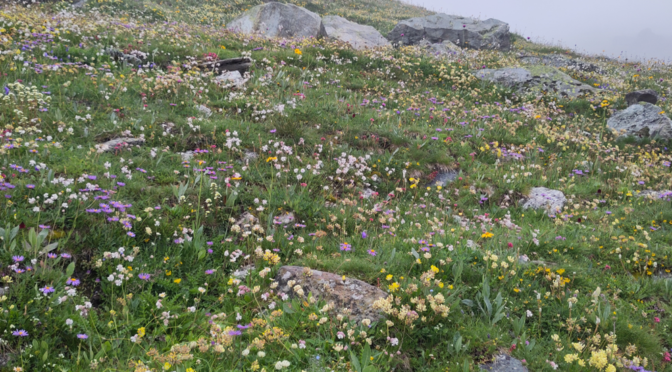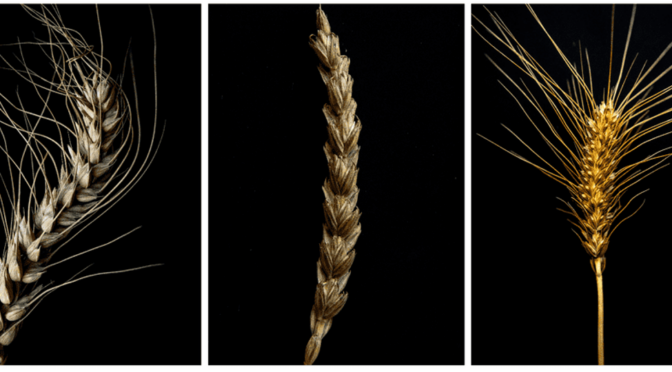Reflections for Biodiversity Researchers Engaging With Policy-Science Interfaces
Continue reading New Publication






Reflections for Biodiversity Researchers Engaging With Policy-Science Interfaces
Continue reading New PublicationResponse Doctoral Program
The food system encompasses all the actors that feed us: farmers, processing companies, retailers, restaurants, and consumers. This complex network faces growing challenges: climate variations, rising production costs, and societal demands for affordable and healthy products. To address these challenges, our food systems must become more resilient while remaining sustainable. At ETH Zurich, we have developed an approach to help regional policymakers transform their regional food systems.
Continue reading Resilient and sustainable regional food systems in SwitzerlandBridging Science and Society: New Swiss Young Academy Report Highlights Innovative Teaching Formats
How can universities better prepare students to collaborate with society and address real-world challenges? A new publication by members of the Swiss Young Academy takes a close look at this question — and offers practical answers for educators and institutions across Switzerland.
“Innovative Teaching Formats at the Science-Society Interface: Reflections and Future Directions in Swiss Higher Education” is the latest report by Benjamin Hofmann, Clara Zemp, Sandra Bärnreuther, and project assistant Morgane Genin. Rooted in hands-on experiences and supported by examples from Swiss higher education, the report explores how teaching formats can meaningfully connect academic learning with societal needs.
Continue reading New PublicationEver wondered if your research has shaped public policy? Sage Policy Profiles, a free tool from Sage Publishing, lets you find out. Powered by Overton’s database of more than 10 million policy documents, the platform allows researchers to search their name or ORCID ID to see where their work has been cited or mentioned in policy papers worldwide.
Continue reading Sage Policy Profiles – Track your impact on policyHow do we build better bridges between science and policy? Addressing challenges such as climate change, biodiversity loss, and social inequities requires more than scientific knowledge or political will. It also takes a set of competencies that are often invisible: the ability to listen carefully, recognize diverse roles, navigate complexity, and engage at the right time and place.
Continue reading Bridging Science and Policy – with Cartoons!If you are an early-career researcher with exciting new research with valuable insights for policymakers, then why not create a poster of your research and join the UN-ETH Forum? Over two days (20-21 October 2025), you will be able to present your research to national and international policymakers, practitioners, and other researchers.
Continue reading UN-ETH-Forum – Call for ContributionsAre you interested in a policy related career? Join us and gain valuable insights into the professional world and career paths of various ETH alumni working across different policy domains and organizations at a national and international level! The event will feature a panel conversation and Q&A session with ETH alumni currently working in policy, followed by a networking apéro.
Continue reading ETH Policy Career EventBridging the divide: Why the science-policy interface matters for global food systems
by Ismahane Elouafi
Continue reading Interesting publicationA new report titled “On Science for Policy and Diplomacy Education in Switzerland and Beyond: A Brief Overview” has just been released, offering timely insights into the growing field at the intersection of science, policy, and diplomacy. Published by the Swiss Young Network for Science Policy and Diplomacy (SYNESPOD) of the Swiss Young Academy, in collaboration with the Geneva Science-Policy Interface (GSPI) and the Franxini Project of Reatch, the report maps educational opportunities for early-career researchers and professionals in Switzerland, Europe, and globally.
Continue reading Bridging Science and Policy – Two systematized overviews on training opportunities and science-policy interaction formatsThe 5-day summer school From Science to Action (2 ECTS) on Science and Policy aims to encourage early-career scientists to drive sustainable change.
Continue reading Science and Policy Summer School – Beyond the Lab